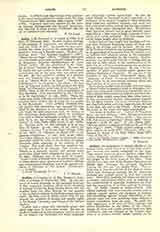

Audisio, GUGLIELMO, b. at Bra, Piedmont, Italy, 1801; d. in Rome, September 27, 1882. He was professor of sacred eloquence in the episcopal seminary of Bra, appointed presiding officer of the Academy of Superga (Turin) by King Charles Albert, but was expelled from this office because he was opposed to the irreligious politics of the Piedmontese Government. He then went to Rome, where Pius IX appointed him professor of natural and popular rights in the Roman University, and Canon of the Vatican Basilica.
Audisio was a pious and charitable priest, and spent large sums in benevolent works. He was an excellent teacher of sacred eloquence, and his manual on the subject was translated into many languages and frequently quoted approvingly. He also devoted himself to historical studies, especially in illustration of the papacy, bringing to them absolutely good intentions, assiduous industry, and much just and acute observation, such as was not then common in the circle which surrounded him. Nevertheless these historical labors had no great intrinsic value, especially at a time when so large a number of documents were being published. For this reason they are no longer sought after by students.
Audisio had no deep insight into theology and law, and often displayed deplorable lapses on these subjects in his writings and his lectures. At the time of the Vatican Council he was accused of Gallicanism, to the great grief of his patron Pius IX, and his work on political and religious society in the nineteenth century was condemned by the Church. Audisio, however, was profoundly Catholic in feeling, and not only did he fully submit to the condemnation of his book, but he warmly protested against the accusation of heterodoxy and disobedience. He was a fervent upholder of papal and Catholic rights against the political liberalism of Piedmont. He was one of the founders of the Catholic intransigeant paper, the “Armonia” of Turin. It was for this reason that he fell a victim to the anticlerical influence which had deprived him of his post at Superga.
But in Rome Audisio united himself with that clique of liberal Italian ecclesiastics (such as Monsignor Liverani) who advocated reforms and concessions not always just and often premature, and who professed doctrines of little weight, sometimes false, often inexact. In this environment Audisio compromised himself, but his figure remains that of an extremely religious and charitable priest and of an eager student devoted to the Holy See and to the Church. Some pages of his works on the popes still merit consultation.
The works of Audisio are: “Lezioni di Eloquenza Sacra” (several editions); “Juris Naturae et Gentium Publici Fundamenta” (Rome, 1852); “Idea storica della diplomazia ecclesiastica” (Rome, 1864); “Storia religiosa e civile dei papi” (5 vols., Rome, 1860); “Sistema politica e religiosa di Federico II e di Pietro della Vigna” (1866); “Della society politica e religiosa rispetto al secolo XIX” (Florence, 1876), condemned by decree of the Holy Office, April, 1877; “Vita di Pio IX”.
U. BENIGNI

